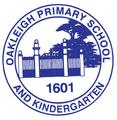Writing development

Supporting your child's writing development
Learning to write is a complex process that begins well before children begin to write actual letters or words. It is an involved and ongoing learning development process that has many stages along the way. It is important that children are allowed to sit within the stage of writing development they are at, to explore and experiment and not to be pushed beyond where they are ready to go.
We don't start life walking. We need to learn to hold up our heads, sit up, crawl and walk. With many stops and starts along the way. The same is true of learning to write. And while as adults we may not remember all the steps we took in our early childhood to learn to write, kindergarten aged children are right in the thick of the learning process, and it is important neurologically that they be allowed to work and learn in ways that are appropriate to their age and development.
Climbing outside, balancing, hanging from A-frames all form part of learning to write. Did you know that using play dough, holding tweezers, picking up small objects, manipulating small construction toys is also necessary for learning to write? Being able to hold tweezers, bring able to manipulate play dough helps strengthen fingers and hands, that will be used to hold pencils and write.
Playing with toys, creating imaginative worlds and talking as they play allows children to learn to plan out thoughts and ideas in sequences that make sense.
There are many ways children show their understanding of writing;
Making marks on a page. These may look like random marks of pencil, marker or paint.
Writing-like marks, squiggles, lines, dots, dashes etc., used in many forms of writing play, for example when a child is playing in home corner they may pretend to write a shopping list, or take a cafe order.
Letter strings, children use letters that they know how to write to make strings of letters to represent words and a message. They may or may not say they know what the writing says.
Writing known, familiar words such as names in seemingly random ways. Young children know the importance of writing, they see family members, educators, people everywhere making marks, writing notes, typing furiously. They know that letters and words are important and carry meaning. They want in! And they often play and practice writing and writing like marks as part of their play.
Attached below is a PDF from Dr Noella Mackenzie on ways families can support children's early writing.
